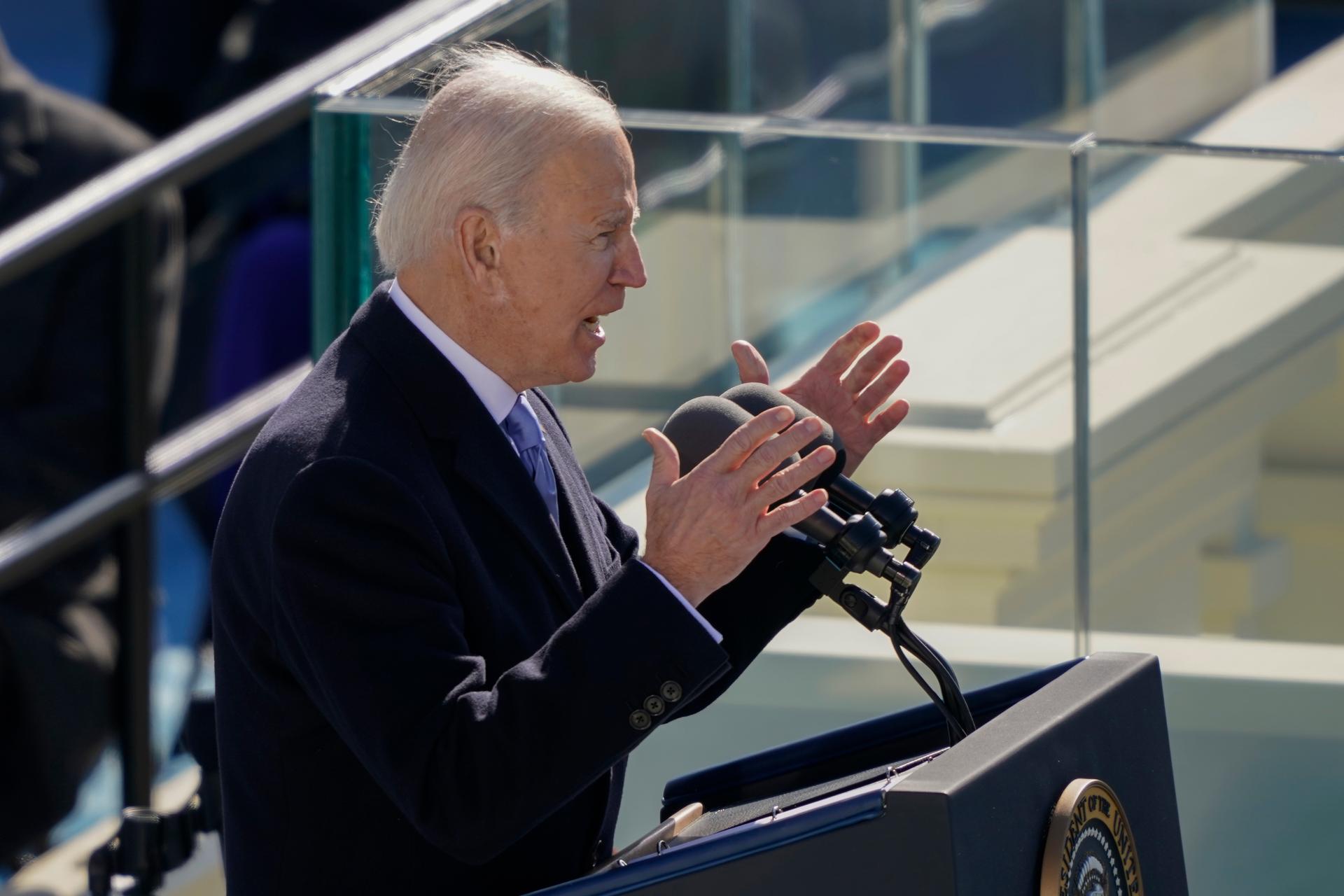On his first day in office, President Biden recommitted the United States to the Paris climate accord.
But the US can’t simply reengage using the old Obama administration playbook, says Jennifer Morgan, former climate adviser to the German government and the executive director of Greenpeace International.
The first thing the US needs to work on is a domestic plan for reducing the emissions that cause climate change, combined with creating new jobs in the renewable energy sector, Morgan says. That means passing a COVID-19 recovery package that includes policies to get the US moving toward zero carbon emissions and laying the groundwork for the infrastructure required to do so.
Related: Paris agreement gets ‘new lease on life’ under Biden, climate advocates say
It also means “stepping up and supporting the most vulnerable countries in the world that are suffering already from the impacts [of climate change] — through aid, through capacity-building, through technology transfer and really putting science at the middle of all of it,” Morgan says.
Technically, the US has been out of the Paris climate agreement only since November, but in reality, former President Donald Trump pretty much sat on his hands for the past four years. So the US has missed out on quite a few opportunities to address the crisis, Morgan adds.
Other countries have moved forward to solve problems together, she says, adapting to the impacts of climate change and figuring out how to do that in a way that takes care of the most vulnerable communities in their countries.
The US has also missed out on parts of the renewable energy boom, Morgan says. Other countries are working toward energy independence and in some of these places, renewables are now competing with or beating out fossil fuels.
Related: Global demand for carbon offsets to combat emissions is growing — but the supply is unreliable
Under Trump, the US also missed out on a sense of collaboration. The Trump administration was not only unwilling to go along, they were actively opposing actions to address climate change, Morgan says. So, other countries now have a sense of solidarity that excludes the US.
“I think that the [new] administration now needs to reenter that whole area with some humility because others had to move forward,” Morgan says.
The US also has to play catch up in its commitments to the Green Climate Fund, which was created to support poor and developing countries and help both “in dealing with the impacts and adapting to climate change and [with] moving forward and implementing solutions,” Morgan says. “You had a whole effort that was underway in the research field, not only to fund research but also to allow scientists to do their job and not stop them from doing their job.”
This year, a major set of climate talks will take place in Glasgow, Scotland. Morgan believes this is the moment, now that the US is back on board, for world leaders “to demonstrate that they’re about the well-being of people and the planet over short-term economic growth. And I think they have a tremendous chance, Biden and Harris, to bring their environmental justice and racial justice agenda [from] the domestic level into the international agenda.”
Morgan says the world breathed “a collective sigh of massive relief” that the US has moved from having a climate denier in the White House to an administration which says that climate is one of its four biggest priorities.
“I think…countries are curious about how the US is going to reengage [in the Paris climate agreement]. … [T]he US can learn a lot from other countries right now and what they’ve been through.”
“I think…countries are curious about how the US is going to reengage in this,” Morgan says. “They will look for that credibility on domestic action and transforming the US economy. And I think they would say to this administration, the world is different than it was four years ago and they’re ready for partnership with the US, [while] also noting that the US can learn a lot from other countries right now and what they’ve been through.”
Optimally, the new administration needs to be driving the world away from fossil fuels in every single way that it can, as quickly as it can, while “providing a just transition for workers that are currently in that sphere, ramping up their work on other solutions, working with communities to do thatand doing that together in a unifying way,” Morgan says.
“I think there’s no choice now, the science is so clear,” she adds. “We have so little time.”
This article is based on an interview by Steve Curwood that aired on Living on Earth from PRX.
Our coverage reaches millions each week, but only a small fraction of listeners contribute to sustain our program. We still need 224 more people to donate $100 or $10/monthly to unlock our $67,000 match. Will you help us get there today?
